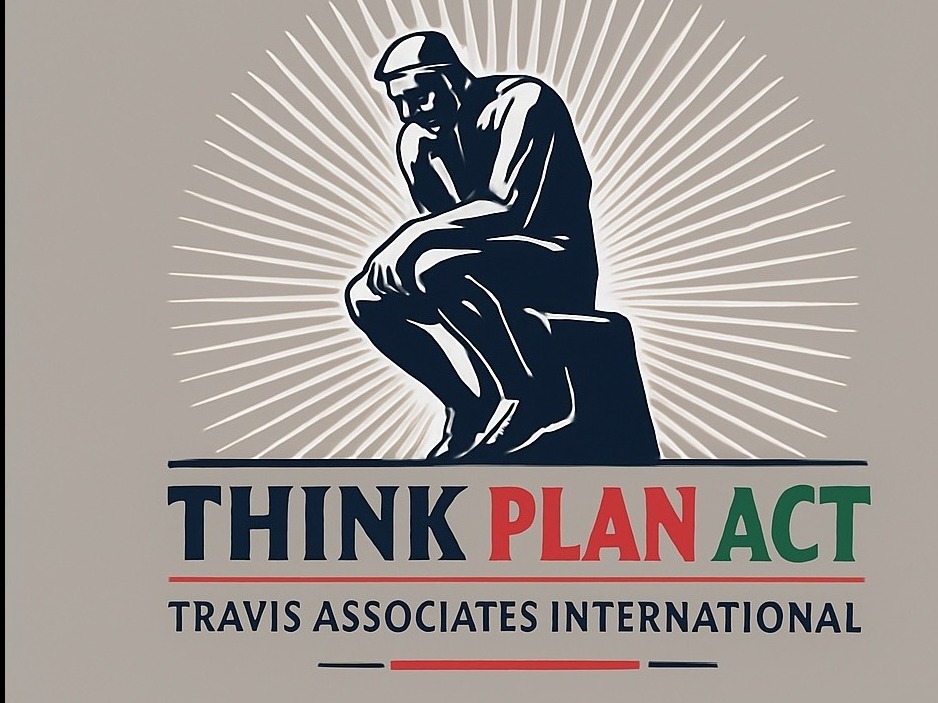Ready to revamp your marketing without breaking the bank? Discover the staggering fact that businesses leveraging cost-effective marketing management experience up to 55% higher ROI than those sticking with outdated, traditional techniques. If you’re a small business owner aiming to make every dollar count or a marketer on a tight budget, this comprehensive list reveals how to cut costs while boosting results—no matter your marketing experience. Stick with us to uncover proven, actionable strategies you can implement today!
Unlocking the Power of Cost-Effective Marketing Management: A Surprising Statistic
"Did you know that businesses utilizing cost-effective marketing management strategies experience up to 55% higher ROI on average compared to traditional techniques?"
- The fundamentals of cost-effective marketing management
- Practical examples of cost reduction in marketing
- Proven marketing strategies for small businesses
- Step-by-step guides to effective digital marketing and social media campaigns
- How to develop a marketing plan with a limited marketing budget
- Insights, expert quotes, and actionable tables to support your growth

What Is Cost-Effective Marketing Management?
- Defining cost-effective marketing management: It’s the practice of maximizing your marketing impact while spending the least possible resources. Instead of relying on expensive, broad-stroke campaigns, cost-effective marketing focuses on methods like targeted digital ads, organic content, and strategic partnerships—delivering high value with low investment.
- Key elements distinguishing effective from ineffective marketing: Successful approaches use data-driven decisions , understand the target audience , and prioritize tactics with measurable ROI—such as personalized email marketing and savvy social media usage. By contrast, ineffective marketing is often random, untracked, and drains your marketing budget with little return.
- Importance for small businesses and startups: With limited funds, small businesses depend on smart, cost-effective choices to level the playing field. For example, one coffee shop swapped pricey radio ads for user-generated Instagram campaigns—gaining greater brand awareness and a local following for far less cost.
- Real-world examples: An e-commerce brand replaced billboard ads with blog posts and engaging case studies, leveraging organic traffic and savings to reinvest into customer loyalty programs.

Cost-Effective Marketing Strategies for Small Business Success
Identifying the right marketing strategies is crucial for a small business with a limited budget. The goal is to trim unnecessary expenses and invest wisely in approaches proven to convert potential customers . For instance, content marketing, including informative blog posts and inspiring brand stories, can draw in a wide audience without high costs. Meanwhile, social media channels offer affordable access to niche markets, making it easier to connect with followers and spark organic growth.
Effective marketing for small businesses isn’t about doing everything—it’s about doing the right things well, from optimizing your email list to postcards and creative networking with a simple business card . These tactics focus on direct engagement, enabling even startups to compete with established brands, increase brand awareness , and form lasting connections with customers.
Top Marketing Strategies to Improve Cost-Effective Marketing Management
- Content marketing: Launch blog posts , share compelling case studies, and distribute free ebooks tailored to your target audience’s needs.
- Social media: Combine organic campaigns with strategically placed paid ads on leading social media platforms for cost-effective reach.
- Email marketing: Regular newsletters and targeted drip campaigns to nurture leads and convert them into customers.
- Business card and networking techniques: Use memorable business cards at local events for face-to-face marketing and relationship building.
- Digital marketing for the modern market: Adopt SEO, content, and PPC to target online users actively seeking your product or service .
- Referral and customer loyalty programs: Encourage happy clients to refer friends and reward loyal customers to fuel word-of-mouth marketing.
- Local SEO: Optimize your web presence and business listings to engage nearby potential customers searching for your offerings.
- Influencer partnerships: Collaborate with micro-influencers who resonate with your niche audience at a fraction of the cost of celebrity endorsements.

Digital Marketing Tactics That Lower Your Marketing Budget
- How digital marketing streamlines cost-effective marketing management: Digital channels like SEO, PPC, and content marketing let you reach highly targeted audiences for a fraction of traditional ad spend. By focusing on the right media channel and fine-tuning your approach, you eliminate much of the wasted budget of broadcast advertising.
- Utilizing SEO, PPC, and retargeting: Invest in long-tail keyword SEO to capture high-converting, intent-driven traffic. Small, carefully managed PPC campaigns—especially with retargeting—help re-engage website visitors and increase conversion rates without overspending.
- The role of automation and AI: Use affordable automation platforms to schedule social posts, manage email lists , and analyze customer data at scale. AI-driven insights help you quickly identify which marketing campaign is most effective so you can reallocate budget on the fly.
- Real examples from small business case studies: A local clothing boutique boosted sales by running a low-budget Facebook retargeting ad, automated abandoned cart emails via Mailchimp, and published a weekly blog post answering common customer questions—generating sustained growth on a shoestring budget.

Creating a Cost-Effective Marketing Plan: Step-by-Step Guide
Every successful marketing strategy starts with a clear, actionable plan. Mapping out your steps is especially important for cost-effective marketing management. By understanding your products or services and the needs of your customers, you lay the foundation to maximize each marketing dollar. Start by outlining your goals and researching which marketing tactics deliver the best return for your industry.
Effective planning means weighing the benefits of various campaigns—whether social media, content creation, or digital ads—and allocating your marketing budget accordingly. With the right marketing plan , you’ll maintain focus, measure results, and adapt your tactics for the highest impact. Don’t forget to include realistic timelines and success metrics!
Setting SMART Goals for Cost-Effective Marketing Management
- Understand your product or service’s unique selling proposition: Pinpoint what sets your offerings apart from competitors and make it the centerpiece of your messaging.
- Identify your target audience efficiently: Research their needs, preferences, and digital hangouts to guide decisions about which media channels and marketing tactics to prioritize.
- Align marketing tactics with business objectives: Ensure every campaign supports your broader business goals—whether it’s building your email list , driving foot traffic, or increasing customer retention.
Allocating Your Marketing Budget: 70-20-10 Rule Explained
The 70-20-10 rule is a proven framework for distributing your marketing dollars. It helps small businesses invest wisely in what’s working, explore new but promising techniques, and remain agile by budgeting for innovation. Let’s break this down in an easy-to-reference table:
| Budget Percentage | Focus | Examples | Why It Matters |
|---|---|---|---|
| 70% | Proven, core strategies | Email marketing, SEO, local events, flagship product ads | Most reliable for ROI and business growth |
| 20% | Emerging techniques | Influencer marketing, new social platforms, targeted video ads | Opportunity to scale what’s working and test new approaches |
| 10% | Experimental initiatives | AI chatbots, viral campaigns, untried digital market trends | Keeps your business innovative and ahead of competitors |

Measuring Marketing Campaign Success and Adjusting for Cost-Efficiency
- Key performance indicators (KPIs): Track metrics like click-through rate, cost per lead, conversion rate, and customer lifetime value to gauge the effectiveness of your cost-effective marketing management.
- Analyze campaign results: Regularly review analytics dashboards to spot trends, double down on successful marketing tactics , and pivot from underperforming ones—maximizing every marketing dollar.
- Adjust strategy: Use data insights to fine-tune your campaigns, whether reallocating funds from email to social media or refocusing content to address your most active customers’ needs. This ongoing optimization keeps your efforts cost-efficient.

Essential Marketing Tactics Every Small Business Should Try
- Content marketing and repurposing blog posts: Update popular blog posts , turn them into infographics or short videos, and extend their reach across different platforms.
- Newsletter optimization and segmentation: Target specific customer groups within your email list with relevant updates and offers.
- Building customer loyalty through rewards: Implement referral or loyalty programs to encourage repeat business and word-of-mouth growth.
- Leveraging free or low-cost social media tools: Schedule consistent posts, engage with followers directly, and monitor trends—all using budget-friendly tools.
- Collecting and acting on customer feedback: Send quick surveys or request reviews to improve your products or services and tailor your marketing approach accordingly.
The Role of Social Media in Cost-Effective Marketing Management
- How small businesses can achieve big results: Creative social media campaigns give startups and local shops a wide-reaching presence. Even with a small marketing budget, viral posts or interactive polls can boost engagement, push brand awareness , and drive sales.
- Scheduling, engagement, and analytics: Use scheduling tools like Hootsuite to stay consistent, respond quickly to potential customers , and analyze which types of posts generate the most interest.
- Examples of viral, cost-effective campaigns: A bakery launched a “flavor of the week” contest on Instagram, driving foot traffic and building a loyal following with minimal cost—or a DIY store ran a TikTok tutorial that generated thousands of views, positioning them as an expert in their community.

Cost-Effective Email Marketing Strategies for Small Businesses
- Choosing the right email platforms: Platforms like Mailchimp or Constant Contact allow you to easily create campaigns, automate follow-ups, and manage your email address lists for a low monthly fee.
- Automation to maximize effectiveness: Set up welcome sequences for new subscribers, automated reminders, and birthday offers to nurture relationships and conversions—all hands-off after the initial setup.
- Case study: A personal caterer created a simple landing page to collect emails, offering a free recipe ebook. For under $10, the resulting email list generated $1,000 in bookings through a single newsletter!

Boosting Customer Loyalty with Cost-Effective Marketing Tactics
- Referral rewards: Encourage current customers to recommend your business, rewarding them with discounts or freebies.
- Loyalty discounts: Offer exclusive savings or early access to repeat buyers, showing appreciation and encouraging more frequent visits.
- Personalized offers using existing data: Use purchase history and feedback to tailor offers, increasing relevance and customer satisfaction.
- Building community: Create a Facebook group or host webinars so customers feel invested in your business journey, which enhances customer loyalty and advocacy.

People Also Ask
What is cost-effective marketing?
- Cost-effective marketing means utilizing your marketing budget to maximize returns, focusing on strategies offering the highest ROI, such as targeted online campaigns and automation. This approach is vital for small business owners aiming to stretch every dollar while achieving measurable results and sustainable growth.
What is the 70 20 10 rule for marketing budget?
- The 70/20/10 rule recommends allocating 70% of your budget to proven strategies, 20% to new approaches showing promise, and 10% to innovative testing. This structured method allows for reliable returns, encourages calculated experimentation, and is a gold standard for cost-effective marketing management in small businesses.
What is cost efficiency in marketing?
- Cost efficiency in marketing measures how effectively a business utilizes its resources to achieve the greatest impact for the lowest cost. It’s a principle essential to cost-effective marketing management , ensuring that every expenditure contributes to significant growth and return on investment.
What marketing method is the most cost-effective?
- Email marketing and content marketing often provide the most cost-effective results for small businesses. These methods offer high personalization and scalability, allowing even small budgets to generate significant returns when campaigns are carefully targeted.
Expert Insights: Quotes on Cost-Effective Marketing Management
"Smart marketing doesn't have to be expensive; it just has to be strategic and customer-focused." – Industry Expert
"For small business owners, maximizing every dollar through cost-effective marketing management is the difference between thriving and merely surviving."
Recommended Tools and Resources for Cost-Effective Marketing Management
- Hootsuite: All-in-one social media scheduling, management, and analytics. Provides both free and paid versions to fit any small business budget.
- Canva: Easy-to-use platform for creating professional images and marketing collateral with no design experience required.
- Mailchimp: The go-to tool for automated email marketing , contact list management, and campaign performance tracking.
- Google Analytics: In-depth analytics to measure your website and campaign success, from visitor behavior to conversion funnels.
- SEMrush: A budget-friendly solution for SEO, keyword research, and digital marketing competitive analysis for small businesses .
| Tool | Features | Pricing (as of 2024) | Best For |
|---|---|---|---|
| Hootsuite | Social media scheduling, engagement analytics, cross-platform management | Free-$99/mo | Social Media Management |
| Canva | Drag-and-drop design, templates, team collaboration | Free-$12.99/mo | Quick Image & Ad Creation |
| Mailchimp | Email automation, list segmentation, campaign analytics | Free-$60/mo | Email Marketing |
| Google Analytics | Website stats, conversion tracking, audience insights | Free | Performance Measurement |
| SEMrush | SEO audit, keyword tracking, competitive research | $119/mo+ | SEO and Digital Market Analysis |

FAQs on Cost-Effective Marketing Management
- How can you measure effectiveness in marketing? Track KPIs such as cost per lead, conversion rates, sales growth, and customer retention. Analyze these metrics using Google Analytics or your chosen CRM tool to determine which marketing tactics deliver the best ROI.
- What are the common mistakes in cost-effective marketing management? Overspending on untested channels, ignoring data-driven decisions, and failing to adapt campaigns based on performance are frequent pitfalls. Stay agile, test tactics in small batches, and be ready to pivot when needed.
- Can cost-effective marketing be scaled as a business grows? Absolutely. Start with foundational strategies like content marketing and email marketing —then invest in scalable automation and analytics tools to maintain efficiency as your business and audience expand.
- How to prioritize marketing tactics on a small business budget? Focus on tactics with proven ROI (like email marketing , content creation, and local SEO). Use the 70-20-10 rule to test new ideas in controlled increments without overcommitting resources.
Final Steps to Achieve Results with Cost-Effective Marketing Management
- Review your current marketing efforts and cut underperforming campaigns
- Implement a clear, data-backed marketing plan based on the strategies above
- Track performance and adjust budget allocations regularly
- Commit to small, continuous improvements for sustainable growth
- Don’t wait—start optimizing your cost-effective marketing management this quarter!
Ready to Take Your Cost-Effective Marketing Management Further?
- Don’t let budget restrictions hold you back. Discover how you can build powerful campaigns that deliver results with cost-effective marketing management . Let's have a chat, call 908-641-9211
Take action now: Assess your budget, choose a strategy, and let these proven marketing tactics set your business up for measurable success—without overspending.
To enhance your understanding of cost-effective marketing management, consider exploring the following resources:
-
“10 Cost-Effective Marketing Strategies” ( revenuemarketingalliance.com )
-
“Six Cost-Effective Marketing Strategies to Grow Your Brand” ( bigstartups.co )
These articles provide practical strategies and insights to help you implement cost-effective marketing techniques effectively.
 Add Row
Add Row  Add
Add 




Write A Comment